
Ask a Publisher AMA with Peter Rubie
Thursday, August 1
12 PM PDT
Zoom link provided upon registration
As everyone probably knows, you or your agent needs to get your book or proposal into the hands of an interested editor; that’s the first hurdle.
A well-crafted proposal, an agent with good relationships, and choosing the right editors to approach are the first steps.
What most would-be authors don’t know is that the editor has to turn around and sell you to an editorial board. The sales management, more often than not, makes the decisions.
If sales and marketing think they can sell your book, then you’ve got a wonderful chance of getting published.
So, how do you sell your book to a publisher?
If it’s your first book, you have no Nielsen Bookscan number to get in the way. That can be a blessing, but you have to prove that you are an “influencer” that can sell your book and provide the publisher’s sales force with the ammo they need to go out to the trade.
Publishing veteran Peter Rubie will help you navigate the rapids of book publishing so you can find the perfect home for your books. Bring all your questions about book publishing so you can learn from some of the best in the business!
To register, please visit the event page and fill out the form at the bottom of the page!

Fall Back Into Your Projects Mixer
Thursday, August 22
12 – 1 PM PDT
Zoom link provided upon registration
Need motivation to get back on track with your writing projects? Ready to take on the rest of 2024? Join WNBA-San Francisco for our August Share and Tell Mixer.
During this mixer, everyone will have a few minutes to:
- Share: Who You Are & Your Biggest Summer Wins
- Tell: What You Are Working on and How Our Community Can Help You Reach your 2024 Goals. This can be a service you are offering or seeking, reviews or editing for your book, questions about next steps, etc. Be sure to sign the virtual guest book and share your contact info.
As our networking ambassador, Debra Eckerling says: “You can’t reach your goals on your own. You need your peeps!” Our growing community of writers and publishing professionals are the key to making these connections happen.
It’s a MIXER, so share this post and bring a literary friend or two to join the virtual fun! We appreciate our members! We’d love for you to join us so we can hear about how this year went for you, and your hopes for the fall to come.
To register, please visit the event page and fill out the form at the bottom of the page!



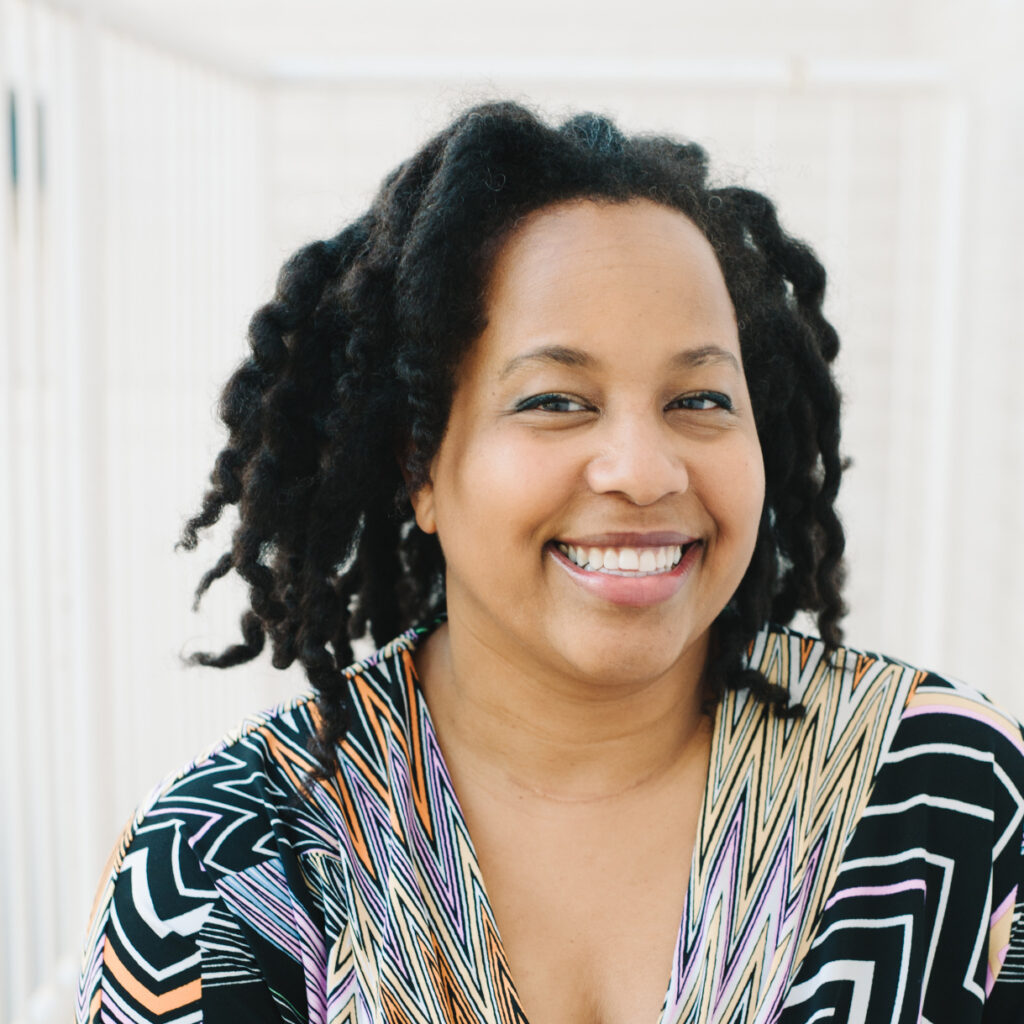 Ellen McBarnette is a lifelong writer whose nonfiction work has been published as testimony, fact sheets, and opinion pieces for organizations that include the Sierra Club and the American Bar Association. A professional storyteller, she is a recent transplant from Washington, DC where she ran the Arlington Creative Nonfiction Writers Group. She now runs the Beta Readers and Writers Group and is an active participant in critique groups in the Bay. She lives in Hayward with her partner Ben and their cat Java.
Ellen McBarnette is a lifelong writer whose nonfiction work has been published as testimony, fact sheets, and opinion pieces for organizations that include the Sierra Club and the American Bar Association. A professional storyteller, she is a recent transplant from Washington, DC where she ran the Arlington Creative Nonfiction Writers Group. She now runs the Beta Readers and Writers Group and is an active participant in critique groups in the Bay. She lives in Hayward with her partner Ben and their cat Java. Mary Mackey is the New York Times bestselling author of fourteen novels, including The Earthsong Series—four novels which describe how the peaceful Goddess-worshiping people of Prehistoric Europe fought off patriarchal nomad invaders (The Village of Bones, The Year The Horses Came, The Horses at the Gate, and The Fires of Spring). They have made The New York Times and San Francisco Chronicle Bestseller Lists, been translated into twelve foreign languages, and sold over a million and a half copies. She has published several collections of poetry, including Sugar Zone and The Jaguars That Prowl Our Dreams. You can get the latest news about Mary’s books, public appearances, newsletter, and writing advice at marymackey.com.
Mary Mackey is the New York Times bestselling author of fourteen novels, including The Earthsong Series—four novels which describe how the peaceful Goddess-worshiping people of Prehistoric Europe fought off patriarchal nomad invaders (The Village of Bones, The Year The Horses Came, The Horses at the Gate, and The Fires of Spring). They have made The New York Times and San Francisco Chronicle Bestseller Lists, been translated into twelve foreign languages, and sold over a million and a half copies. She has published several collections of poetry, including Sugar Zone and The Jaguars That Prowl Our Dreams. You can get the latest news about Mary’s books, public appearances, newsletter, and writing advice at marymackey.com.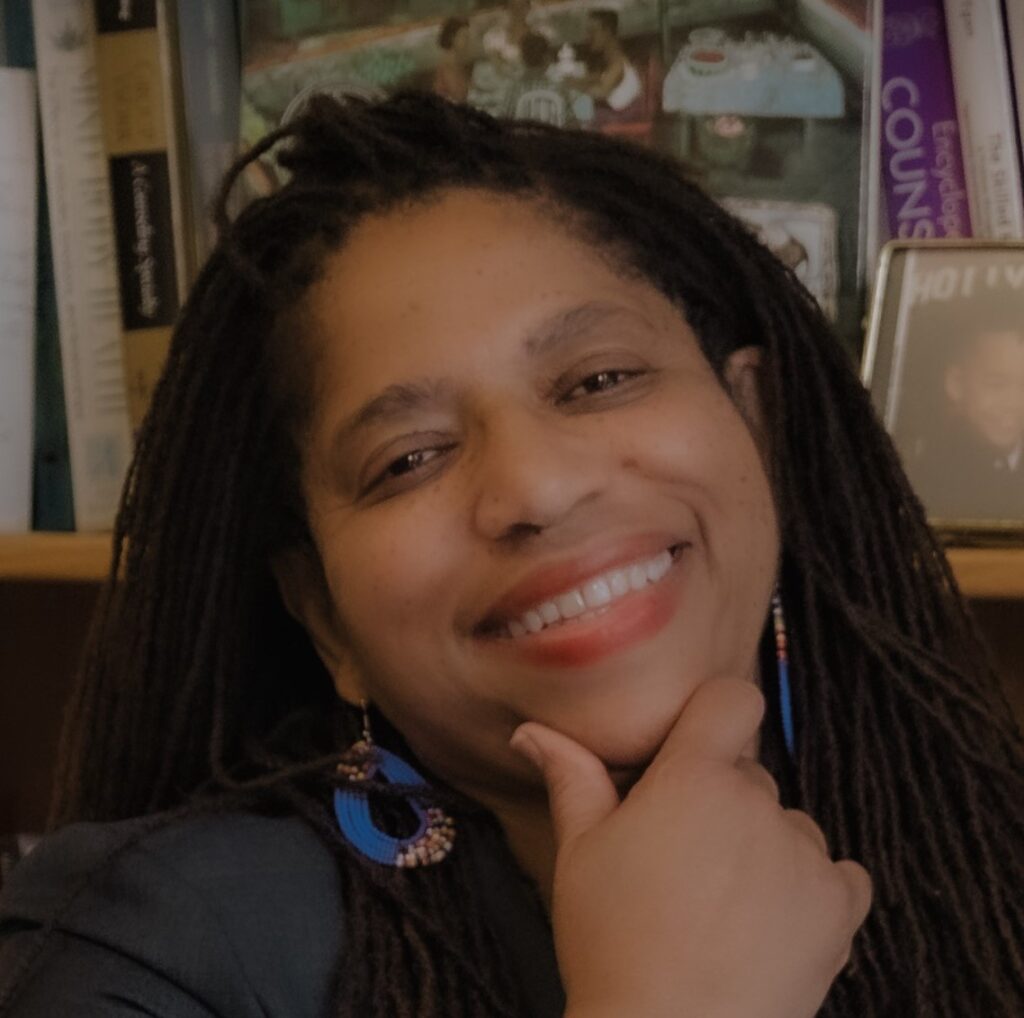 Sheila Smith McKoy, PHD is an award-winning poet, fiction writer, and filmmaker. She is the recipient of the 2020 Muriel Craft Bailey Memorial Prize in poetry. Her poetry collections include The Bones Beneath (Black Lawrence Press, 2024) One Window’s Light: A Haiku Collection, a collaboration of five Black poets; the collection won the 2017 Haiku Society of America’s Merit Book Award for best haiku anthology. In addition to her poetry and fiction, Smith McKoy has authored and edited numerous scholarly works. She focuses on vital conversations about equity, inclusion and the Black speculative. A native of Raleigh, NC, she lives in the San Francisco Bay Area.
Sheila Smith McKoy, PHD is an award-winning poet, fiction writer, and filmmaker. She is the recipient of the 2020 Muriel Craft Bailey Memorial Prize in poetry. Her poetry collections include The Bones Beneath (Black Lawrence Press, 2024) One Window’s Light: A Haiku Collection, a collaboration of five Black poets; the collection won the 2017 Haiku Society of America’s Merit Book Award for best haiku anthology. In addition to her poetry and fiction, Smith McKoy has authored and edited numerous scholarly works. She focuses on vital conversations about equity, inclusion and the Black speculative. A native of Raleigh, NC, she lives in the San Francisco Bay Area.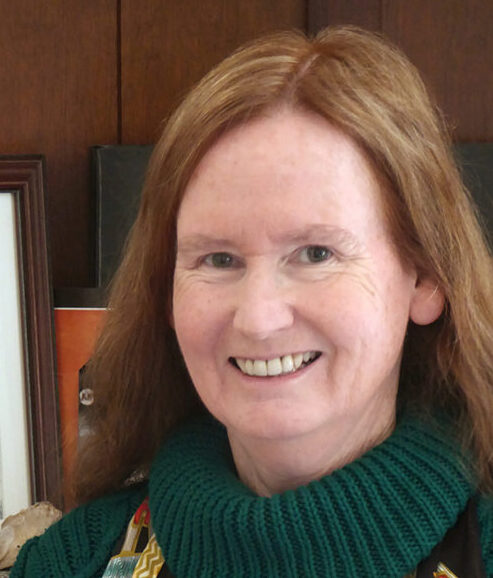 Vanessa MacLaren-Wray writes science fiction and fantasy about people—human and otherwise—connecting in our complex universe. She’s the author of the Patchwork Universe series: All That Was Asked, Shadows of Insurrection, and Flames of Attrition. She also writes for the Truck Stop at the Center of the Galaxy shared-world series and guest-hosts for the podcast Small Publishing in a Big Universe. She’s an active member of the Science Fiction and Fantasy Writers Association, the California Writers Club, and (of course) the WNBA. When not arguing with her cats, she works on new stories, her email journal, Messages from the Oort Cloud, and her website, Cometary Tales.
Vanessa MacLaren-Wray writes science fiction and fantasy about people—human and otherwise—connecting in our complex universe. She’s the author of the Patchwork Universe series: All That Was Asked, Shadows of Insurrection, and Flames of Attrition. She also writes for the Truck Stop at the Center of the Galaxy shared-world series and guest-hosts for the podcast Small Publishing in a Big Universe. She’s an active member of the Science Fiction and Fantasy Writers Association, the California Writers Club, and (of course) the WNBA. When not arguing with her cats, she works on new stories, her email journal, Messages from the Oort Cloud, and her website, Cometary Tales.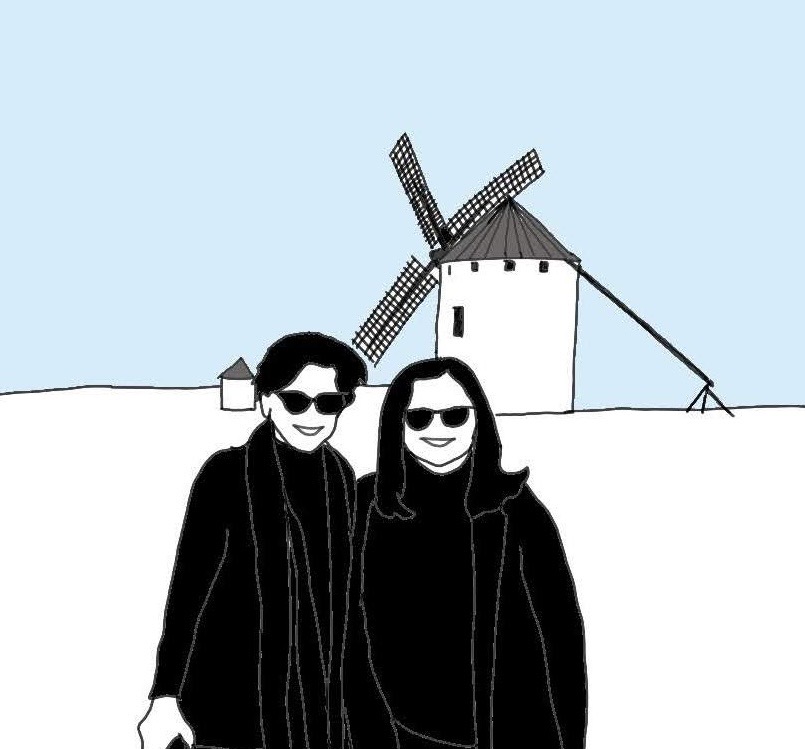
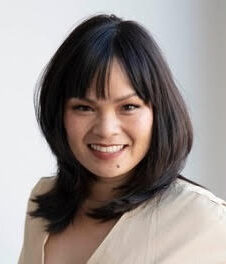 Christina Vo is a writer based in Santa Fe, New Mexico. Her work reflects her commitment to understanding and sharing the complexities of the human experience. Christina’s debut memoir, The Veil Between Two Worlds: A Memoir of Silence, Loss, and Finding Home, demonstrates her ability to weave personal experiences into broader narratives about identity, home, and belonging. Her second book, My Vietnam, Your Vietnam, an intergenerational memoir co-written with her father, was published in April 2024 and recently selected for the Ms. Magazine Most Anticipated Feminist Books of 2024. She has worked internationally for UNICEF in Vietnam, the World Economic Forum in Switzerland, as well as served as a consultant for nonprofits.
Christina Vo is a writer based in Santa Fe, New Mexico. Her work reflects her commitment to understanding and sharing the complexities of the human experience. Christina’s debut memoir, The Veil Between Two Worlds: A Memoir of Silence, Loss, and Finding Home, demonstrates her ability to weave personal experiences into broader narratives about identity, home, and belonging. Her second book, My Vietnam, Your Vietnam, an intergenerational memoir co-written with her father, was published in April 2024 and recently selected for the Ms. Magazine Most Anticipated Feminist Books of 2024. She has worked internationally for UNICEF in Vietnam, the World Economic Forum in Switzerland, as well as served as a consultant for nonprofits.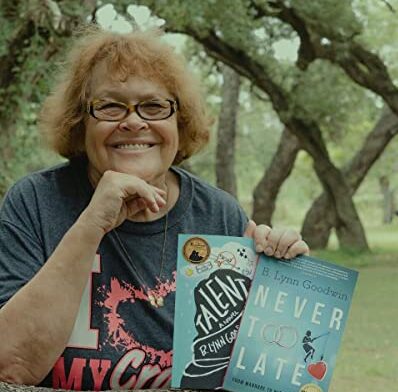
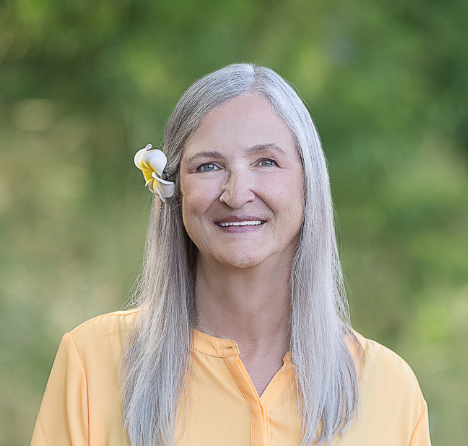 After the deaths of two husbands, as well as the many family members and friends, Emily Thiroux Threatt has much experience in the grieving process and has learned to face life with love, optimism, and joy.
After the deaths of two husbands, as well as the many family members and friends, Emily Thiroux Threatt has much experience in the grieving process and has learned to face life with love, optimism, and joy.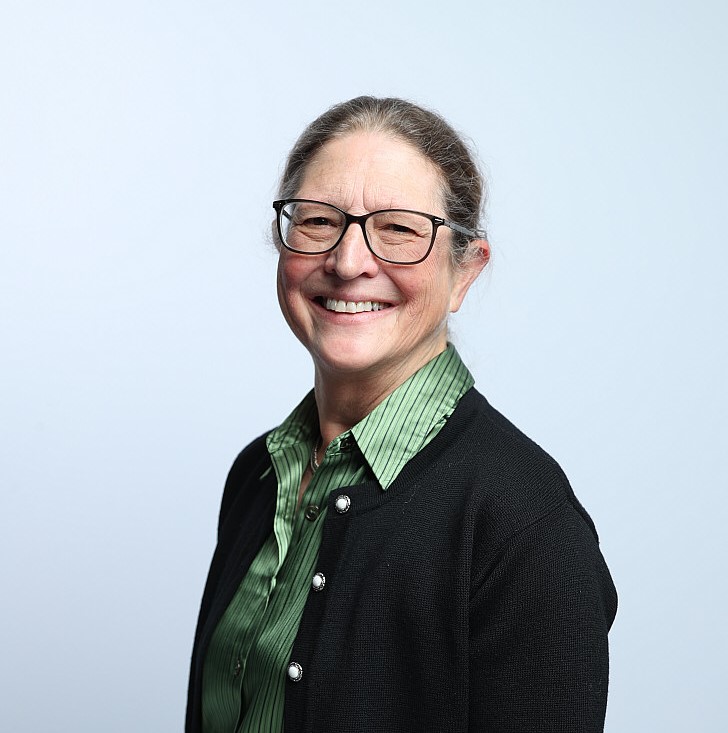
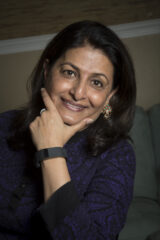
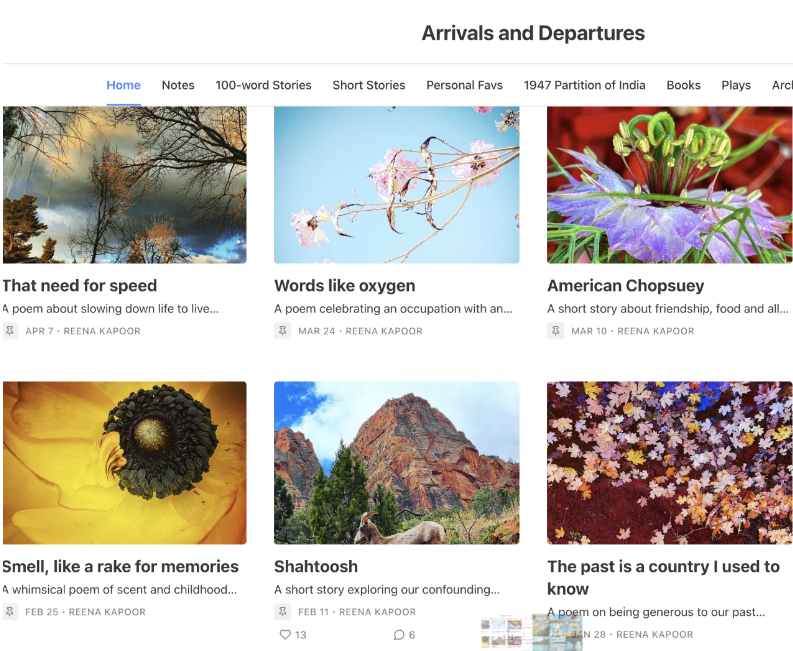
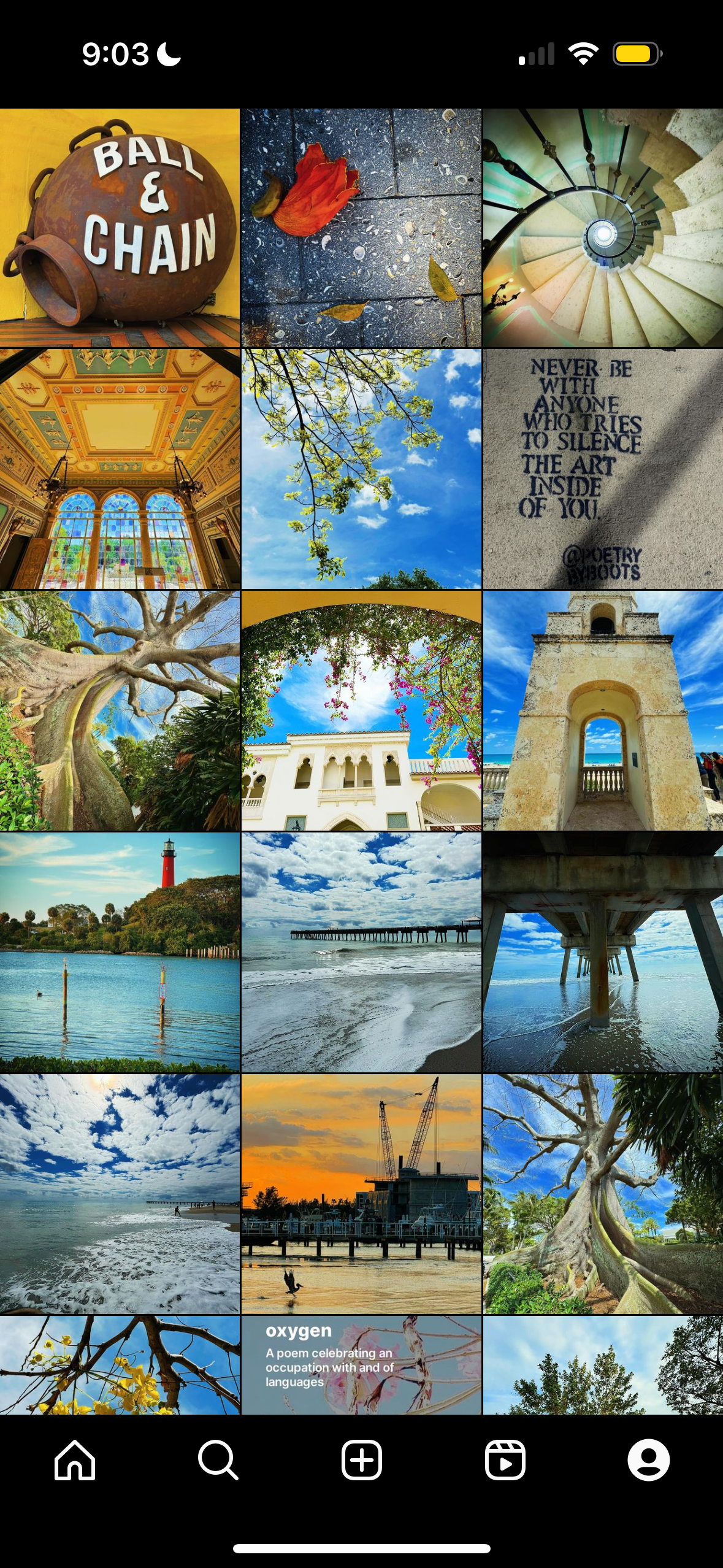
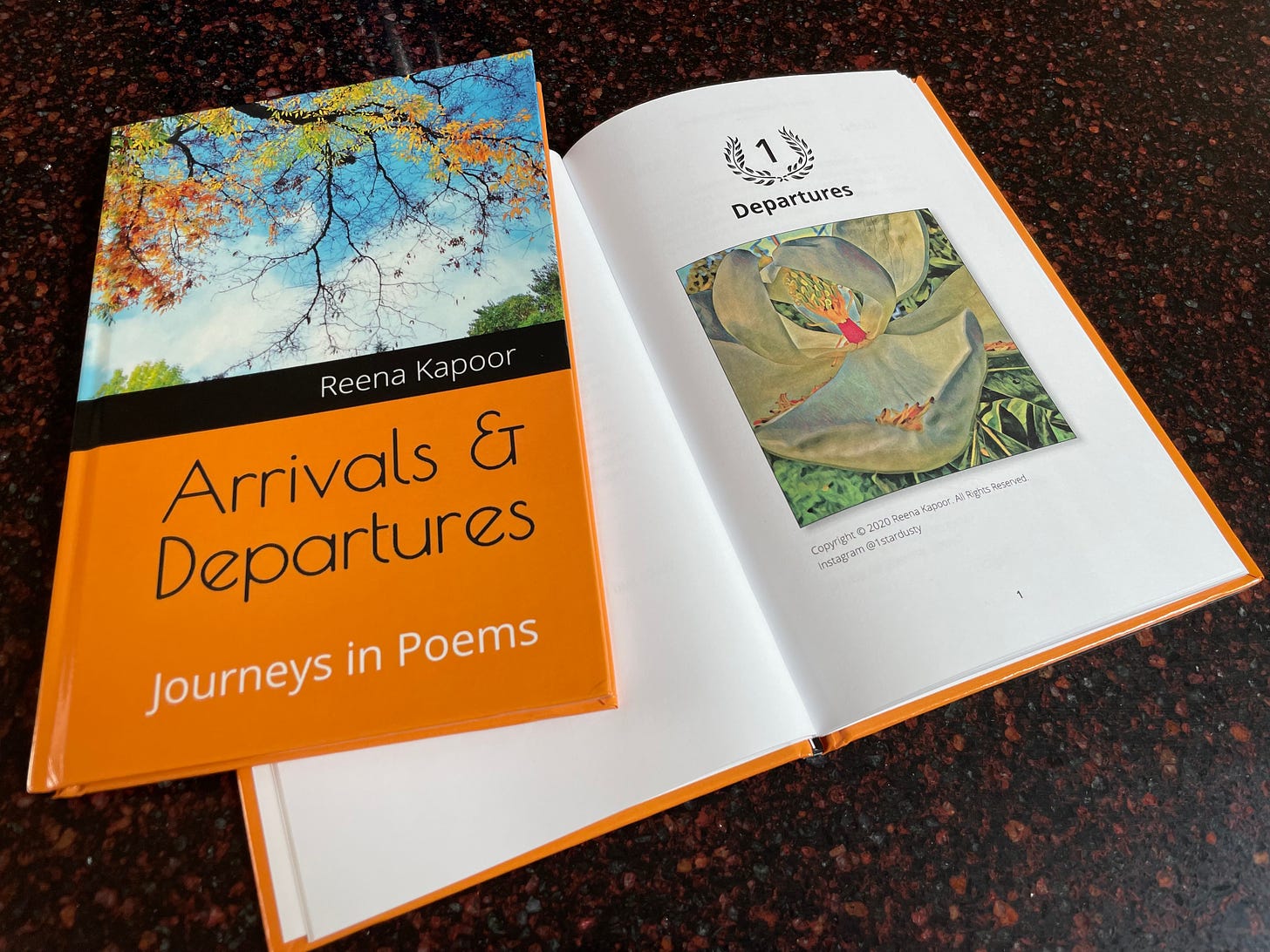 A lot of the poems are also from a unique personal history of my family’s origins which is tied to the history of India. India became independent from British colonial rule in 1947 and at the same time India was partitioned into two countries Pakistan, which became an Islamic Republic, and India, which continued on as a secular Republic. Unfortunately, this was not a peaceful split. A great upheaval, terrible violence and tragedy followed as both Hindus and Muslims who found themselves on the “wrong” side of the border (based on religion) were forced to flee their generational homes, their lives and the only homes they’d ever known. Both my parents were refugee children whose families had to leave everything in what now became Pakistan to move to the new India. Several of my poems are about this 1947 Partition of India, and the tragedy and traumatic aftermath of that event. In particular, my interest has been on the effect it had on women and injustice and tragedy that they suffered during Partition. Those poems are also part of my collection. I continue to write essays on that subject as well.
A lot of the poems are also from a unique personal history of my family’s origins which is tied to the history of India. India became independent from British colonial rule in 1947 and at the same time India was partitioned into two countries Pakistan, which became an Islamic Republic, and India, which continued on as a secular Republic. Unfortunately, this was not a peaceful split. A great upheaval, terrible violence and tragedy followed as both Hindus and Muslims who found themselves on the “wrong” side of the border (based on religion) were forced to flee their generational homes, their lives and the only homes they’d ever known. Both my parents were refugee children whose families had to leave everything in what now became Pakistan to move to the new India. Several of my poems are about this 1947 Partition of India, and the tragedy and traumatic aftermath of that event. In particular, my interest has been on the effect it had on women and injustice and tragedy that they suffered during Partition. Those poems are also part of my collection. I continue to write essays on that subject as well.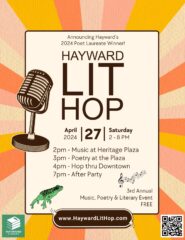
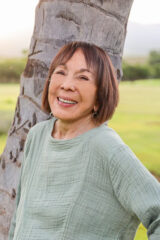
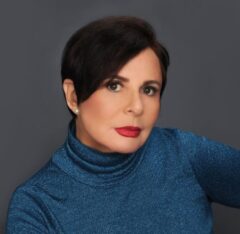
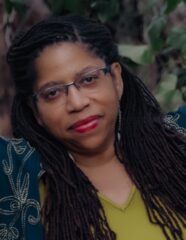 Sheila Smith-McCoy is an award-winning poet, fiction writer, and filmmaker. Her full-length poetry collection, The Bones Beneath is a haunting new work from Black Lawrence Press. In addition to her poetry and fiction, Smith McKoy has authored and edited numerous scholarly works. Her books include the seminal text in understanding white race riots, When Whites Riot: Writing Race and Violence in American and South African Cultures. She is co-editor of Recovering the African Feminine Divine in Literature, the Arts, and Performing Arts: Yemonja Awakening (2020), and editor of The Elizabeth Keckley Reader: Writing Self, Writing Nation (2016) and The Elizabeth Keckley Reader: Artistry, Culture and Commerce (2017). Smith McKoy has also written, produced, directed or served as executive producer for four documentary films.
Sheila Smith-McCoy is an award-winning poet, fiction writer, and filmmaker. Her full-length poetry collection, The Bones Beneath is a haunting new work from Black Lawrence Press. In addition to her poetry and fiction, Smith McKoy has authored and edited numerous scholarly works. Her books include the seminal text in understanding white race riots, When Whites Riot: Writing Race and Violence in American and South African Cultures. She is co-editor of Recovering the African Feminine Divine in Literature, the Arts, and Performing Arts: Yemonja Awakening (2020), and editor of The Elizabeth Keckley Reader: Writing Self, Writing Nation (2016) and The Elizabeth Keckley Reader: Artistry, Culture and Commerce (2017). Smith McKoy has also written, produced, directed or served as executive producer for four documentary films.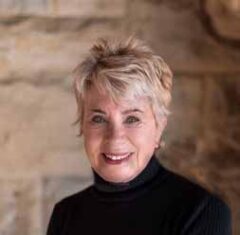 Geri Spieler
Geri Spieler